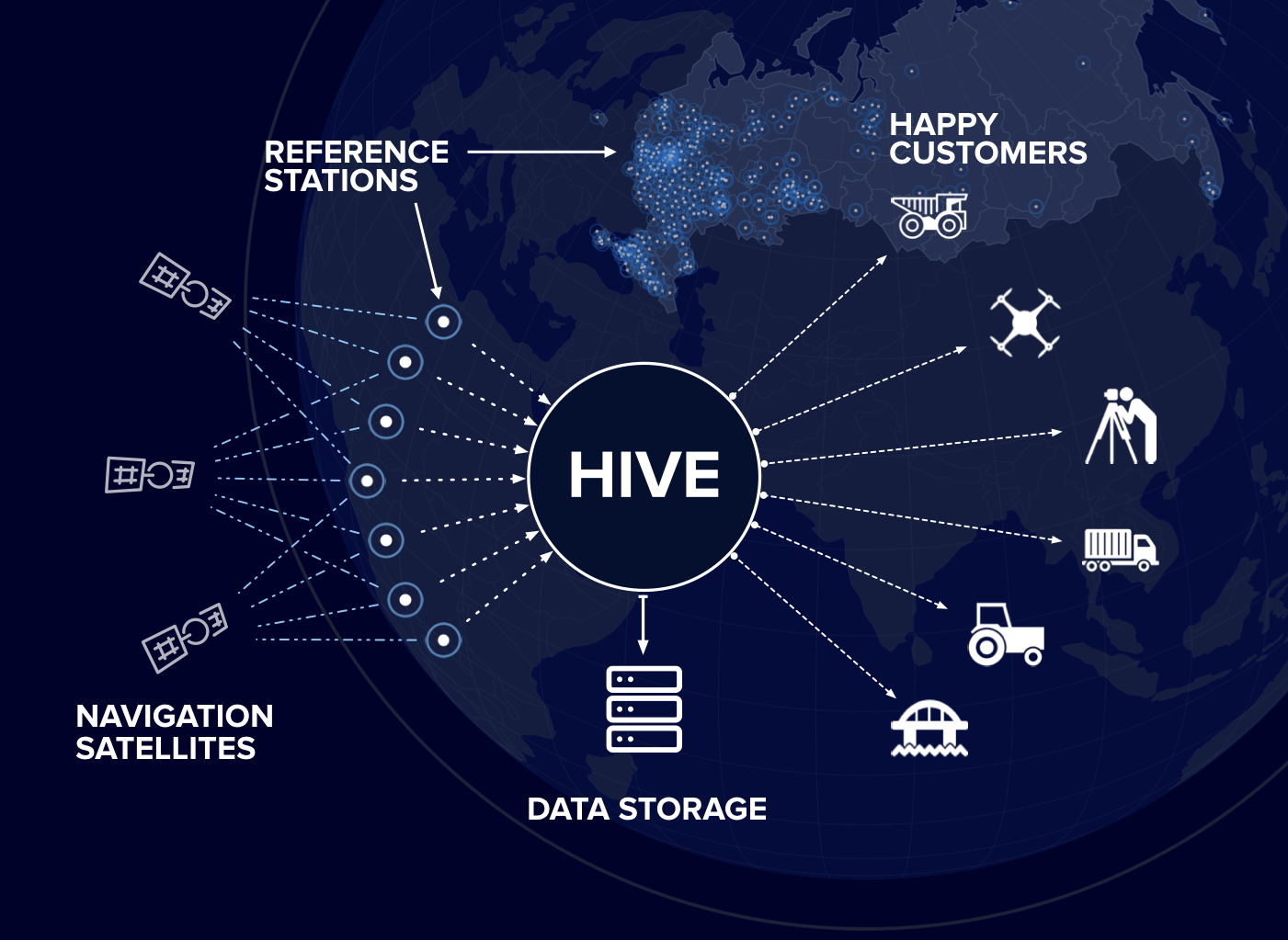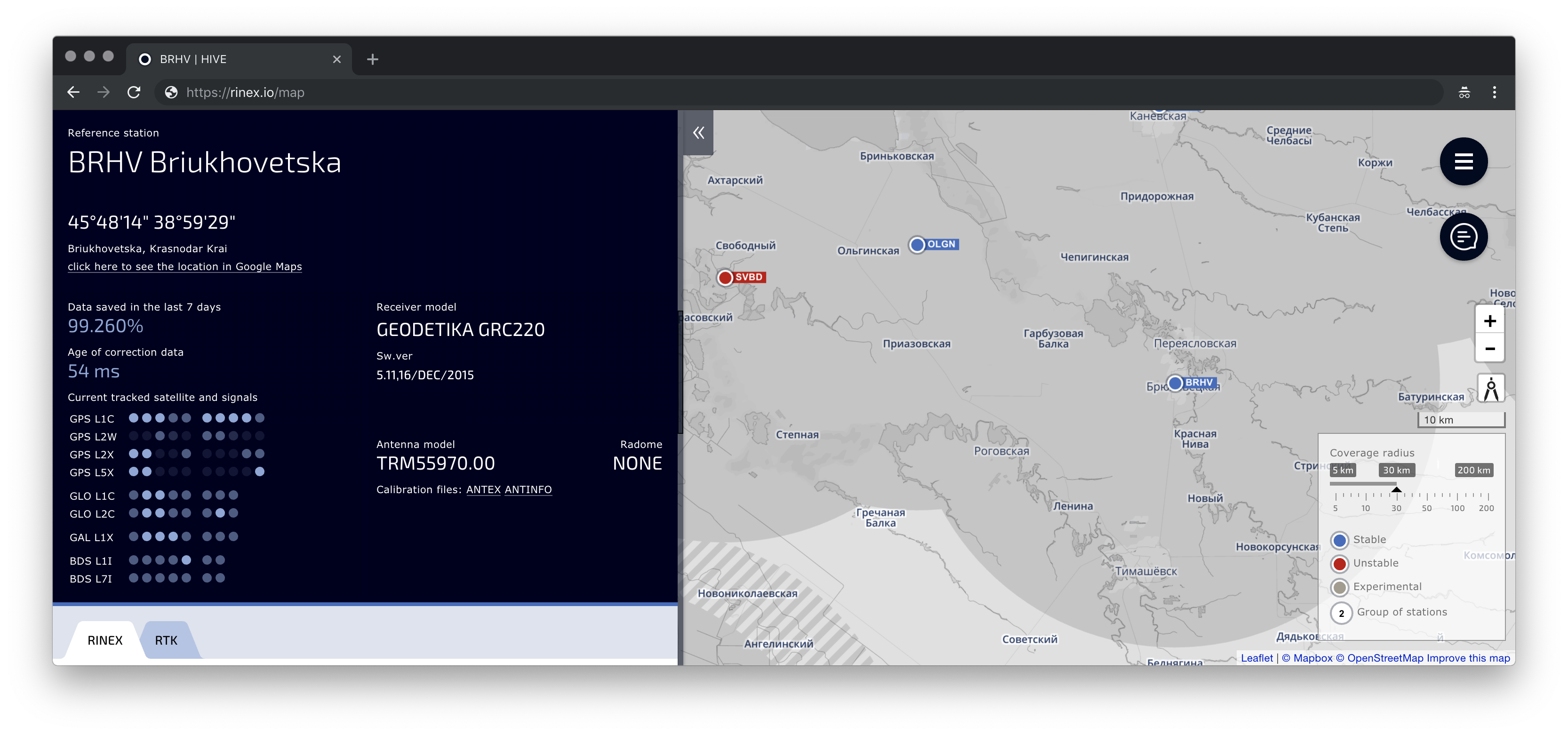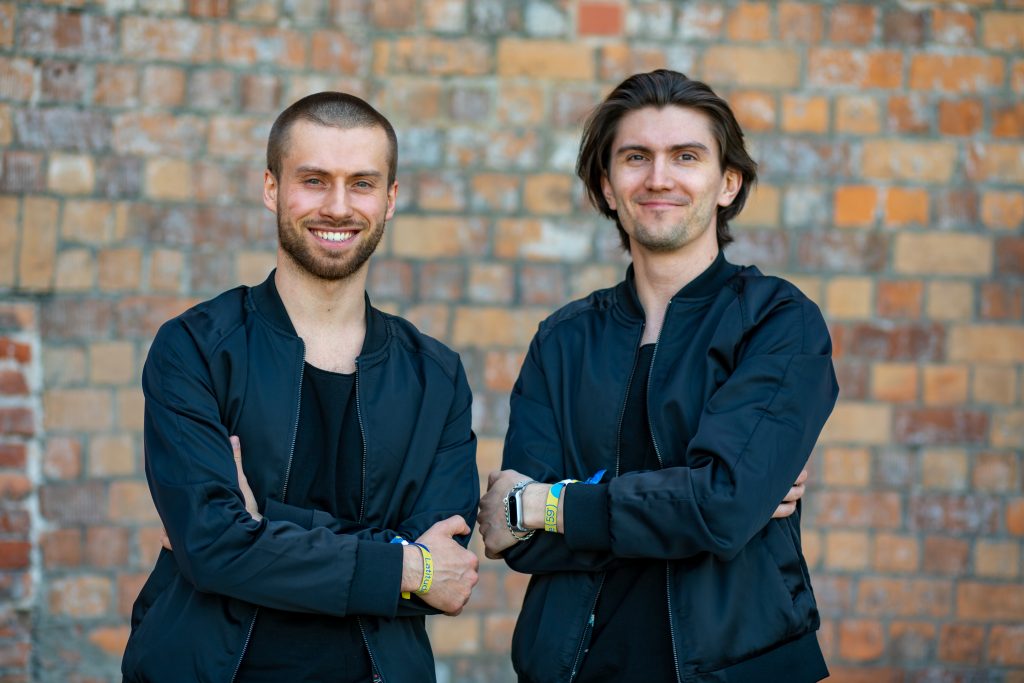Simon Litvinov and Dmitrii Kislenko, HIVE (Precision Navigation Systems OÜ)

A start-up called “HIVE” provides a solution for super-accurate real time GNSS positioning and navigation, using existing ground based continuously operating GNSS reference stations (CORS).
We talked with HIVE’s Simon Litvinov and Dmitrii Kislenko to discuss the company’s software and their transition to Estonia.
The project started 4 years ago in Russia as a cloud-based software for GNSS reference station management which included collecting RAW GNSS data from any number of reference stations and delivering it in form of RTK–corrections and RINEX-archives for post-processing. There are thousands of fragmented CORS across the country owned by hundreds of public, commercial companies and private entities. Therefore, there was always a challenge for land surveyors to get data access from the CORS located in different regions and owned by different parties.
HIVE provides its various customers a means of connecting to a wide array of network stations through a single software platform (via HIVE).

Spaceoneers: Tell us about HIVE.
Simon Litvinov: We launched HIVE a few years ago in Russia when we noticed a problem with land surveyors, the early adopters of high-precision technology from reference stations. When they worked and operated in one region with one reference station, but then wanted to go to another part of Russia, they did not know where to find these stations or how to connect to them to receive GNSS data. This happened, because, unlike European countries, Russia doesn’t have a national infrastructure for high-precision GNSS positioning. Many users were leveraging different forums to ask for data and exchange the information about stations in a very inefficient way. We saw this problem and tried to solve it.
There are companies that use this information in such traditional industries as raw building, precision agriculture, construction, and more. We wanted to connect this wealth of information in one place. This is how we started to grow. Now we cover one third of the country. This way, we could be considered like Airbnb, but apartments are reference stations for us.
Spaceoneers: What satellite systems are you working with?
Dmitrii Kislenko: We work with all existing satellite systems: GPS, Galileo, GLONASS, BeiDou and QZSS. The more satellites GNSS receiver tracks, the more precise and stable position it will provide. Supporting multiple systems and signals is a price-vs-quality concern for a hardware manufacturer; for us — the more, the merrier.
Spaceoneers: I understand you’ve also set up your company in Estonia?
Simon Litvinov: Yes. We wrongly thought that Russian market would be enough for us. From one side, we became the largest GNSS correction data provider in Russia, providing GNSS data from 550 reference stations and covering a third of the country. On the other side, Russian market is still small, not developing and doesn’t have a support system. So, we decided to replicate our experience to the international market. Our team got spotted by Startup Wise Guys accelerator, we went through their program and set up a new company in Estonia — Precision Navigation Systems.

(via HIVE Russia – hive.geosystems.aero)
Spaceoneers: Do you want to run your business exactly the same way you did in Russia?
Dmitrii Kislenko: No, we don’t want to work with land surveyors any more. We are targeting autonomous machines, robots and drones. These are new emerging technologies and their wise users have the same problems in this area: they want to have an easy access to GNSS data from CORS, they want to work with the same data provider across all European countries to avoid making additional contracts with local companies, etc. HIVE’s technology is solving these problems.
Spaceoneers: What major differences do you notice between you company’s operations in Russia and Estonia or Europe?
Simon Litvinov: Markets are very different in Russia and Europe. Almost nobody knows about us here in Europe, while in Russia everyone does, as we are the largest provider out there. We have a strong relationship back home with our network, however here in Europe people might have preconceptions, such as lacking credibility or political concerns.
Building relationships and networking are still our top priorities, because HIVE works as a platform connecting multiple parts in one place. By solving a problem of GNSS data accessibility, growing coverage area and building additional services on top of that – we expect that over the next five years our HIVE platform will become a standard, where all new autonomy-related start-ups will be built upon.
Spaceoneers: What are the biggest differences in Europe in terms of the start-up ecosystem?
Dmitrii Kislenko: In Russia, start-ups are relying on their own resources, investing their own money, and/or getting their money from existing sales to invest in their new company. Some are afraid to take investments, worrying that they may lose control over their new company. Here in Europe, start-ups are more open to investments and in fact they are actively looking for them. One of the main peculiarities of European start-up mentality is to rely on investors.
Spaceoneers: What are the next steps for HIVE?
Simon Litvinov: Now we are constantly working on customer development, talking to all the companies dealing with drones, robotics and other autonomous systems. We are engaging with R&D teams from the industry to discuss tech trends and prioritise our product features. We are forming the new strategies by engaging with European space community and taking part in such challenges as European Satellite Navigation Competition, etc.
Also, we have contact with Andrus Kurvits applying for the European Space Agency’s (ESA) Business Incubation Centre (BIC) in Estonia. Next week, I will be in Pittsburgh — the heart of robotics and autonomous vehicles — to establish relationship with local ecosystem and get some insights from robotics gurus from Carnegie Mellon University. All these activities will help us to pivot HIVE into the right direction.
Spaceoneers: What opportunities do you see with Europe’s Galileo navigation system?
Simon Litvinov: From our point of view, Europe is a great place for space start-ups because Galileo is developing, and people want to lead the new projects. All Galileo capabilities will be available soon, including high precision positioning and people are very interested in using everything that Galileo has to offer. ESA BIC’s brand (Verification and support from ESA) can help us with HIVE in European market. We are moving forward in our project and always happy and open for new business contacts.
